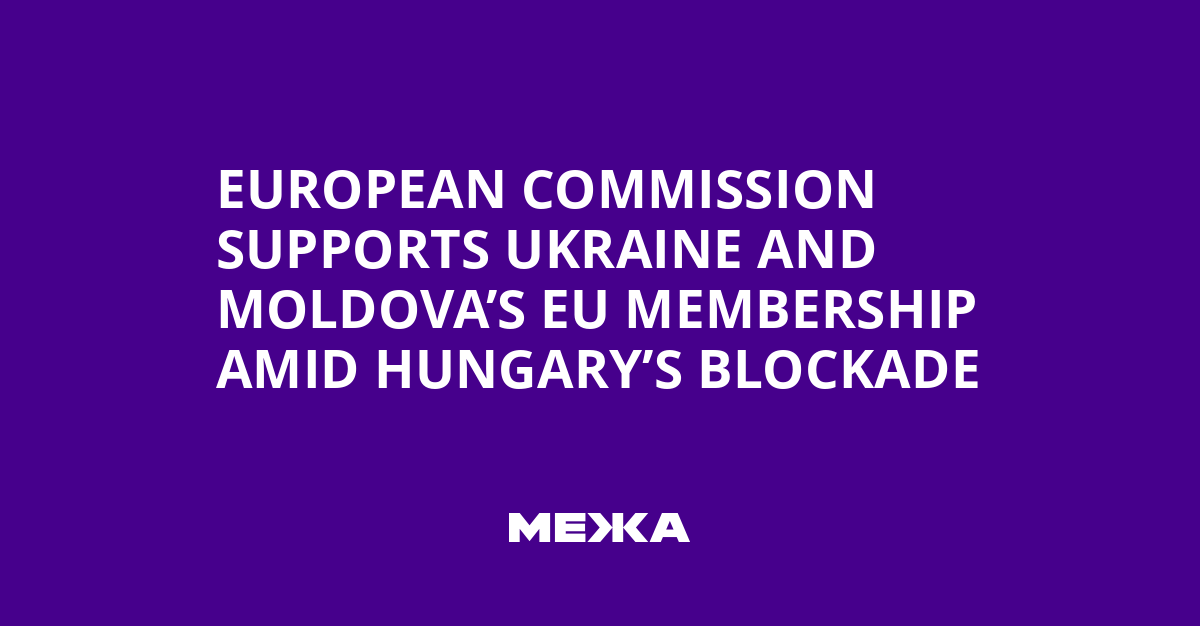As stated by the Deputy Prime Minister for European Integration Olga Stefanishyna in an interview with Interfax-Ukraine, this process is a “small obstacle that will not prevent the start of negotiations.”
The European Commission has confirmed that it does not require the separation of Ukraine and Moldova on their path to European Union membership. This was announced by EC spokesperson Guillaume Mercier during a briefing.
“We do not demand the separation of Moldova. It is up to the member states to decide whether they want that. But what we want to do is truly support Ukraine and Moldova in the accession preparation process. We will continue to provide as much political, technical, and financial support as possible to Ukraine and Moldova, and we will continue this work.”
– Guillaume Mercier, spokesperson for the European Commission
The spokesperson also noted that the EC aims to ensure a positive attitude from all member states towards Moldova and Ukraine, as well as towards opening the first negotiation cluster and achieving sustainable progress.
“We have always advocated a merit-based approach when it comes to accession, and in this case, there are no objective reasons to oppose the opening of the first cluster (accession negotiations, ed.). So, when a candidate country is not accepted without objective reasons, despite meeting the criteria, the entire enlargement process loses trust. Therefore, we very much hope that we will be able to open the first cluster very soon.”
– Guillaume Mercier, spokesperson for the European Commission
On June 26, during the European Council meeting, Romanian President Nicolae Ciucă stated that on July 4 the European Union would open the first cluster of Moldova’s EU accession negotiations. However, an EU representative denied this information.
“I’m afraid he misspoke.”
– EU representative
On June 27, Nicolae Ciucă acknowledged his mistake, explaining that he meant the meeting in Chișinău on July 4 – the “EU–Moldova” summit.
Hungary’s Blocking of Ukraine’s EU Accession
Since the beginning of 2025, Hungary has been blocking the opening of negotiation clusters for Ukraine’s EU accession. The country’s government claims that Ukraine’s membership in the EU would become a burden both for the bloc and for Hungary itself.
The Hungarian government held a consultative referendum on Ukraine’s EU accession, accompanied by a list of “7 key threats” that they believe Ukraine’s membership could cause. Among these threats are economic risks, migration, impact on the pension system, and jobs.
Additionally, the Hungarian government sent letters to citizens urging them to vote against Ukraine’s EU membership during the referendum.
On June 26, 2025, Hungarian Prime Minister Viktor Orbán stated that he opposes Ukraine’s EU accession because it could lead to the war being brought onto Hungarian territory. He also announced the results of the consultative referendum, in which over 2 million Hungarians participated, and 95% voted against Ukraine’s membership.
Although this referendum has no legal force, Orbán uses it as a tool of political pressure on EU partners.
The leader of Hungary’s opposition party “Tisza,” Péter Magyar, noted that in reality only 600,000 Hungarians out of more than 9.5 million population took part in the referendum.
In Ukraine, this initiative is considered a political manipulation. Deputy Prime Minister for European Integration Olga Stefanishyna emphasized that this process is “a small obstacle that will not prevent the start of negotiations.”
